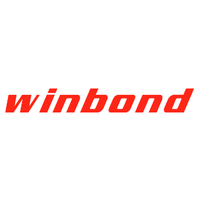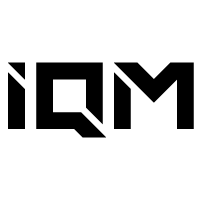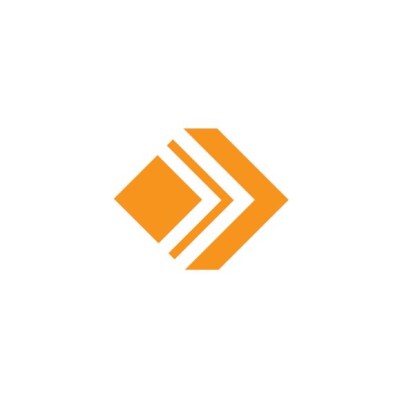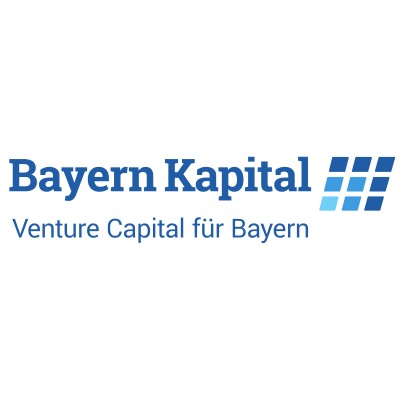Quantum Leader IQM Secures Record $320 Million, Fuels Global Expansion
September 4, 2025, 3:32 pm
IQM Quantum Computers secured a record $320 million Series B funding. This propels total capital to $600 million. The landmark investment fuels aggressive global expansion. It accelerates development of fault-tolerant quantum systems. IQM strengthens its leadership in superconducting quantum technology. The company targets key US and APAC markets. It scales advanced chip fabrication. The focus is on achieving millions of qubits. This solidifies IQM’s unique commercial-first approach.
IQM Quantum Computers achieved a monumental funding milestone. The company raised $320 million in Series B capital. This historic sum marks the largest quantum Series B outside the United States. It boosts IQM’s total funding to $600 million. This significant investment accelerates IQM’s technological roadmap and global commercial reach.
IQM leads the field in superconducting quantum computers. These machines offer full-stack capabilities. They operate on-premises or via a cloud platform. The company has already sold over 13 quantum computing systems. Most integrate into existing supercomputing centers. They support fundamental physics simulations. They optimize performance across various complex workflows.
The company’s technology stands out. It features chip-based architecture. This leverages proven semiconductor wafer scalability. A core differentiator is error correction. IQM’s approach is ten times more hardware-efficient. This surpasses methods used by other industry players. Their systems are highly mature. They are standalone and self-calibrated. Standard 19-inch rack footprints ensure seamless integration. This makes them globally competitive.
Cloud access broadens IQM’s reach. Its Resonance platform serves diverse users. It offers exclusive processors like Crystal 20 and Star 24. Users leverage familiar SDKs, including Qiskit and Cirq. Enterprise adoption shows strong growth. Sectors like pharma, logistics, finance, and security utilize the cloud platform. Companies actively build quantum teams. They develop intellectual property. They test critical use cases. This prepares them for future quantum readiness. Services and support packages accompany system sales. These cover maintenance, training, and HPC integration.
IQM’s commercial mindset has been pivotal. This approach distinguished the company from its inception. Even with a research-heavy team, the goal was clear: sell the technology. Early sales provided crucial lessons. They shaped product definition, pricing, and delivery. Customer feedback directly influenced the roadmap. This early commercialization strategy proved highly effective.
European programs like EuroHPC further amplified IQM’s advantage. These initiatives integrate quantum technology into supercomputing procurement. Europe now boasts more deployed quantum computers in supercomputing centers than the US. This demonstrates strong global competitiveness for the European model.
Future goals are ambitious and clearly defined. IQM aims for fault-tolerant quantum computing. It seeks to scale systems to thousands, then millions, of qubits. A substantial portion of the new funding targets chip fabrication expansion. This supports the rapid technological acceleration.
Commercial expansion is equally vital. IQM plans aggressive growth in the US market. It will boost machine sales and cloud services. A new developer platform with an SDK is launching in partnership with Crisp. This initiative aims to attract a broader developer base. It targets quantum, high-performance computing, and other fields.
The global market presents a dynamic landscape. IQM identifies three primary technology blocks. The US features hyperscalers. Europe focuses on research and startups. The APAC region shows growing semiconductor and industrial strengths. IQM sees strong traction in APAC. Customers exist in Korea and Taiwan. Singapore and Japan are making significant investments. Japan, particularly, exhibits a robust national strategy. Major players like Fujitsu actively enter the field.
Public-private partnerships drive progress in the Nordics. This region has a strong quantum ecosystem. These partnerships are critical for industry transition from academia. Finland offers a prime example. It features VTT, a state-owned chip fab line. Universities like Aalto and Helsinki contribute research. Suppliers like Bluefors lead in cryogenics. This collaborative environment fosters deep tech momentum. Other Nordic countries show similar activity. Major industrial foundations like the Wallenberg Foundation provide significant backing.
The Series B funding round attracted diverse investors. Ten Eleven Ventures, a cybersecurity-focused firm, led the round. This marks IQM's first US investor. Existing Finnish venture firm Tesi increased its commitment. Other participants included pension funds Elo Mutual Pension Insurance and Varma Mutual Pension Insurance. Strategic investors Schwarz Group and Winbond Electronics Corporation also joined. Sovereign wealth funds EIC and Bayern Kapital provided further support. Goldman Sachs International acted as the sole placement agent.
Ten Eleven Ventures’ investment is highly strategic. The US is the largest market for supercomputing. Most global computing centers reside there. A US investor strengthens IQM’s commercial push. It opens crucial doors and activates vital networks. Ten Eleven’s focus on technology and cybersecurity aligns perfectly. This is highly relevant for quantum applications. Their experience in government-related deals offers significant value.
Alex Doll, Co-founder and Managing General Partner of Ten Eleven Ventures, now joins IQM’s board of directors. This provides valuable counsel and connections. Tesi has supported IQM since its inception. It has witnessed IQM’s journey to global leadership. Tesi highlights IQM’s strides in technology, production, and customer deliveries.
IQM’s long-term vision emphasizes sustainability. The company aims to build a profitable, enduring business. The immediate focus remains on scaling. This includes both technological advancements and commercial operations. The record funding ensures ample capitalization for these goals.
Further investments will enhance IQM’s chip fabrication in Finland. This supports research and development. It targets fault-tolerant quantum computing in the near term. Advanced fabrication capabilities facilitate scaling to one million qubits. This pairs with ongoing quantum error reduction and correction efforts.
Early-stage deep tech founders receive clear advice. Begin product thinking sooner. Engage customers early. Sell, learn, and iterate. These feedback loops are invaluable. They transform cutting-edge research into a viable global business. IQM embodies this strategic approach.
IQM Quantum Computers achieved a monumental funding milestone. The company raised $320 million in Series B capital. This historic sum marks the largest quantum Series B outside the United States. It boosts IQM’s total funding to $600 million. This significant investment accelerates IQM’s technological roadmap and global commercial reach.
IQM leads the field in superconducting quantum computers. These machines offer full-stack capabilities. They operate on-premises or via a cloud platform. The company has already sold over 13 quantum computing systems. Most integrate into existing supercomputing centers. They support fundamental physics simulations. They optimize performance across various complex workflows.
The company’s technology stands out. It features chip-based architecture. This leverages proven semiconductor wafer scalability. A core differentiator is error correction. IQM’s approach is ten times more hardware-efficient. This surpasses methods used by other industry players. Their systems are highly mature. They are standalone and self-calibrated. Standard 19-inch rack footprints ensure seamless integration. This makes them globally competitive.
Cloud access broadens IQM’s reach. Its Resonance platform serves diverse users. It offers exclusive processors like Crystal 20 and Star 24. Users leverage familiar SDKs, including Qiskit and Cirq. Enterprise adoption shows strong growth. Sectors like pharma, logistics, finance, and security utilize the cloud platform. Companies actively build quantum teams. They develop intellectual property. They test critical use cases. This prepares them for future quantum readiness. Services and support packages accompany system sales. These cover maintenance, training, and HPC integration.
IQM’s commercial mindset has been pivotal. This approach distinguished the company from its inception. Even with a research-heavy team, the goal was clear: sell the technology. Early sales provided crucial lessons. They shaped product definition, pricing, and delivery. Customer feedback directly influenced the roadmap. This early commercialization strategy proved highly effective.
European programs like EuroHPC further amplified IQM’s advantage. These initiatives integrate quantum technology into supercomputing procurement. Europe now boasts more deployed quantum computers in supercomputing centers than the US. This demonstrates strong global competitiveness for the European model.
Future goals are ambitious and clearly defined. IQM aims for fault-tolerant quantum computing. It seeks to scale systems to thousands, then millions, of qubits. A substantial portion of the new funding targets chip fabrication expansion. This supports the rapid technological acceleration.
Commercial expansion is equally vital. IQM plans aggressive growth in the US market. It will boost machine sales and cloud services. A new developer platform with an SDK is launching in partnership with Crisp. This initiative aims to attract a broader developer base. It targets quantum, high-performance computing, and other fields.
The global market presents a dynamic landscape. IQM identifies three primary technology blocks. The US features hyperscalers. Europe focuses on research and startups. The APAC region shows growing semiconductor and industrial strengths. IQM sees strong traction in APAC. Customers exist in Korea and Taiwan. Singapore and Japan are making significant investments. Japan, particularly, exhibits a robust national strategy. Major players like Fujitsu actively enter the field.
Public-private partnerships drive progress in the Nordics. This region has a strong quantum ecosystem. These partnerships are critical for industry transition from academia. Finland offers a prime example. It features VTT, a state-owned chip fab line. Universities like Aalto and Helsinki contribute research. Suppliers like Bluefors lead in cryogenics. This collaborative environment fosters deep tech momentum. Other Nordic countries show similar activity. Major industrial foundations like the Wallenberg Foundation provide significant backing.
The Series B funding round attracted diverse investors. Ten Eleven Ventures, a cybersecurity-focused firm, led the round. This marks IQM's first US investor. Existing Finnish venture firm Tesi increased its commitment. Other participants included pension funds Elo Mutual Pension Insurance and Varma Mutual Pension Insurance. Strategic investors Schwarz Group and Winbond Electronics Corporation also joined. Sovereign wealth funds EIC and Bayern Kapital provided further support. Goldman Sachs International acted as the sole placement agent.
Ten Eleven Ventures’ investment is highly strategic. The US is the largest market for supercomputing. Most global computing centers reside there. A US investor strengthens IQM’s commercial push. It opens crucial doors and activates vital networks. Ten Eleven’s focus on technology and cybersecurity aligns perfectly. This is highly relevant for quantum applications. Their experience in government-related deals offers significant value.
Alex Doll, Co-founder and Managing General Partner of Ten Eleven Ventures, now joins IQM’s board of directors. This provides valuable counsel and connections. Tesi has supported IQM since its inception. It has witnessed IQM’s journey to global leadership. Tesi highlights IQM’s strides in technology, production, and customer deliveries.
IQM’s long-term vision emphasizes sustainability. The company aims to build a profitable, enduring business. The immediate focus remains on scaling. This includes both technological advancements and commercial operations. The record funding ensures ample capitalization for these goals.
Further investments will enhance IQM’s chip fabrication in Finland. This supports research and development. It targets fault-tolerant quantum computing in the near term. Advanced fabrication capabilities facilitate scaling to one million qubits. This pairs with ongoing quantum error reduction and correction efforts.
Early-stage deep tech founders receive clear advice. Begin product thinking sooner. Engage customers early. Sell, learn, and iterate. These feedback loops are invaluable. They transform cutting-edge research into a viable global business. IQM embodies this strategic approach.



